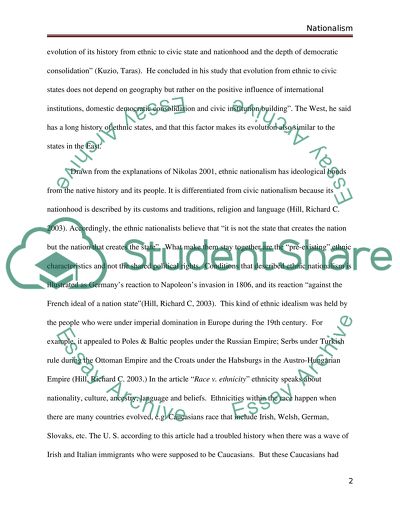Cite this document
(“What is the difference between civic nationalism and ethnic Essay”, n.d.)
Retrieved from https://studentshare.org/history/1582354-what-is-the-difference-between-civic-nationalism-and-ethnic-nationalism-can-the-former-exist-without-the-latter
Retrieved from https://studentshare.org/history/1582354-what-is-the-difference-between-civic-nationalism-and-ethnic-nationalism-can-the-former-exist-without-the-latter
(What Is the Difference Between Civic Nationalism and Ethnic Essay)
https://studentshare.org/history/1582354-what-is-the-difference-between-civic-nationalism-and-ethnic-nationalism-can-the-former-exist-without-the-latter.
https://studentshare.org/history/1582354-what-is-the-difference-between-civic-nationalism-and-ethnic-nationalism-can-the-former-exist-without-the-latter.
“What Is the Difference Between Civic Nationalism and Ethnic Essay”, n.d. https://studentshare.org/history/1582354-what-is-the-difference-between-civic-nationalism-and-ethnic-nationalism-can-the-former-exist-without-the-latter.


